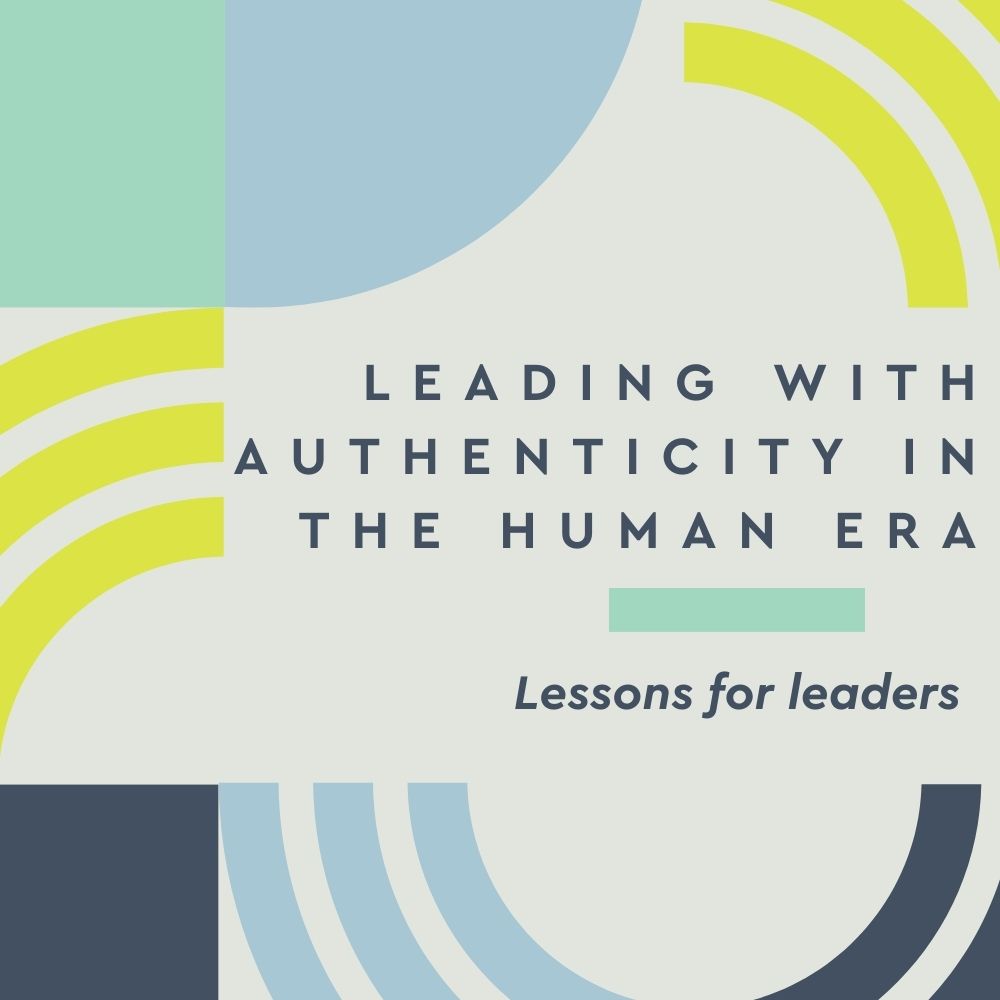“Be true to yourself” isn’t a worn-out pep talk. It’s valuable advice to anyone who aspires to be an effective leader. Studies show higher work engagement and improved psychological well-being and job satisfaction among employees who view their managers as authentic.
Authentic leadership is especially crucial now because we live in the Human Era. In the Human Era, businesses with meaningful workplace cultures will be the ones to succeed. Others will struggle to hit performance targets and retain employees. For meaningful cultures to exist, team members must trust their managers.
While every leader is different, authentic leaders share certain qualities. They’re honest, transparent, and driven by a set of personal values. They cultivate trust and mutual respect through integrity and by building strong relationships. Authentic leaders create a safe space where others feel comfortable being themselves and expressing opinions, even if those ideas are outside the norm.
Here’s what an authentic leader isn’t: Someone who speaks or acts without concern for the impact of their words or actions on others. It’s a myth to think that “telling it like it is” is authentic if it’s hurtful. Leading authentically means leading with empathy.
As a leader, you may already display these traits or you may admire them in others. To lead authentically, you must become self-aware of your own unique leadership qualities and continually practice those that create a positive impact. Leadership is personal and different styles, strengths, and approaches are all great if they are true to you.
Nobody can be authentic trying to imitate someone else. Yet, many leaders take on characteristics of their CEO, boss, or even a former executive, sometimes unconsciously and other times because they see those behaviors as valued. This often happens in organizations that promote people who fit a certain mold. Leading authentically in this type of environment takes focus and courage, especially when it goes against the grain.
Perhaps you don’t consider yourself a leader yet. It’s important to not let predetermined definitions of what a leader is or isn’t stand in your way of achieving your true potential. A person can be a leader even if they have no direct reports or they lack an impressive job title.
Most of us were led to believe that leaders look and act a certain way. We’re bombarded with books, podcasts, and online content. They tell us the best leaders are assertive, the best leaders are outspoken, the best leaders are influencers, etc. But there is no single definition of a leader.
Recognizing that you are enough and that while you’ll continue to grow, you’re a leader right now, is the first step towards advancing in your authentic leadership.
By leading from a place of authenticity, you not only help create a meaningful workplace culture. You become who you were born to be. You become unstoppable.



